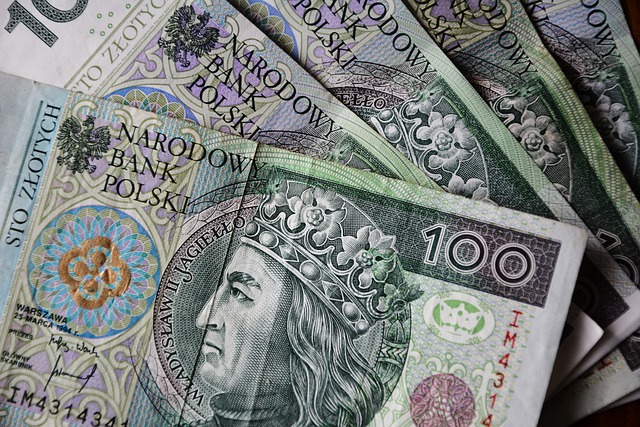South Africa is emerging as a significant player in the global cryptocurrency market due to its thriving tech sector and increasing digital literacy. However, the lack of clear regulations poses significant risks for consumers, with decentralized nature and limited oversight leaving them vulnerable to fraud and market volatility. The National Treasury's Cryptocurrency Discussion Paper proposes regulatory measures like licensing, consumer protection, and AML/KYC rules to address this gap. International best practices from countries like the US and Europe can guide South Africa in creating a balanced framework that fosters innovation while protecting investors, stabilizing the market, and ensuring a secure digital asset ecosystem.
“Cryptocurrency regulations in South Africa are gaining urgency as the digital currency gains popularity. This article delves into the current state of crypto regulation, highlighting consumer protection concerns within the nascent South African market. We examine global comparisons and best practices to inform proposed reforms aimed at fostering a safer and more robust cryptocurrency ecosystem. By exploring these aspects, we aim to enhance understanding of cryptocurrency regulations in South Africa and their implications for investors.”
- Understanding Cryptocurrency in South Africa: A Growing Phenomenon
- The Current Regulatory Landscape: What's in Place?
- Consumer Protection Concerns: Risks and Challenges
- International Comparisons: Best Practices for Regulation
- The Way Forward: Proposed Reforms for Safer Crypto Markets
Understanding Cryptocurrency in South Africa: A Growing Phenomenon

In recent years, cryptocurrency has gained significant traction in South Africa, reflecting a global trend. The country’s vibrant tech ecosystem and increasing digital literacy have contributed to its rise as a prominent player in the crypto space. As the use of cryptocurrencies like Bitcoin, Ethereum, and stablecoins expands, so does the need for clear regulations to protect consumers. South Africa is witnessing a rapid growth in crypto adoption, with more citizens turning to these digital assets for investment, remittances, and alternative forms of payment. This surge has brought both opportunities and challenges, underscoring the importance of effective cryptocurrency regulations in South Africa to ensure consumer protection and market stability.
The decentralized nature of cryptocurrencies presents unique regulatory hurdles. Traditional financial institutions are not involved, making it crucial for the government to establish frameworks that safeguard investors from fraud, money laundering, and other illicit activities. With the rapid evolution of crypto technologies, South African regulators must stay agile in their approach to keep pace with innovations like smart contracts, decentralized finance (DeFi), and non-fungible tokens (NFTs). Implementing robust cryptocurrency regulations will not only protect consumers but also foster a secure and inclusive environment for the industry’s growth.
The Current Regulatory Landscape: What's in Place?

South Africa’s regulatory landscape for cryptocurrency is evolving, with a mix of guidance and legislation already in place. The National Treasury has published a Cryptocurrency Discussion Paper, aiming to foster public debate on the topic. This paper outlines various options for regulating cryptocurrencies, including licensing requirements for crypto-related services, consumer protection measures, and anti-money laundering (AML) and know-your-customer (KYC) frameworks.
Currently, South Africa lacks comprehensive cryptocurrency regulations. While there’s no outright ban, the absence of clear guidelines has left a regulatory vacuum. This has led to increased consumer vulnerability, with some individuals falling victim to fraudulent schemes and market volatility. As such, the introduction of robust crypto regulations is imperative to protect consumers, promote market stability, and encourage legitimate participation in the cryptocurrency ecosystem within South Africa.
Consumer Protection Concerns: Risks and Challenges

Cryptocurrency, despite its promise of financial freedom and transparency, presents unique risks for consumers in South Africa. The decentralized nature of this digital asset means that there’s often a lack of oversight and regulation, leaving investors vulnerable to fraud, scams, and market volatility. In an industry where new players emerge daily, many South Africans, particularly the younger generation, are drawn to the potential quick gains, failing to grasp the inherent risks involved.
The challenge lies in balancing the need for consumer protection with the innovative spirit of cryptocurrency. The current landscape lacks clear guidelines on dispute resolution, investment advice, and security measures for digital wallets. As regulations in South Africa catch up with global trends, it’s crucial to establish robust frameworks that protect investors while fostering a thriving crypto ecosystem.
International Comparisons: Best Practices for Regulation

When comparing South Africa’s cryptocurrency regulations to international standards, several best practices emerge. Many leading global economies have adopted multifaceted approaches to regulating cryptocurrencies, focusing on consumer protection, anti-money laundering (AML), and know-your-customer (KYC) protocols. These nations have established clear guidelines for digital asset exchanges, investment platforms, and wallet providers, ensuring transparency and oversight.
For instance, the United States’ Financial Crime Enforcement Network (FinCEN) has issued comprehensive guidelines for virtual currency businesses, while European countries like the UK and Germany have implemented robust KYC and AML frameworks. These international models can guide South Africa in crafting regulations that balance innovation with investor protection, fostering a secure and efficient digital asset ecosystem within the country.
The Way Forward: Proposed Reforms for Safer Crypto Markets

To ensure a safer and more regulated cryptocurrency market in South Africa, several proposed reforms aim to balance innovation with consumer protection. These include strengthening anti-money laundering (AML) and know-your-customer (KYC) measures, which are essential to mitigate financial crimes and protect investors from fraudulent activities. Implementing stricter regulations for initial coin offerings (ICOs) and cryptocurrency exchanges is also crucial. This involves enhanced oversight, transparency requirements, and better investor education initiatives.
Furthermore, collaboration between various regulatory bodies and industry stakeholders is key. Harmonizing global standards can help create a cohesive framework that facilitates both innovation and security. By embracing technological advancements while maintaining robust supervision, South Africa can position itself as a leader in cryptocurrency regulations, fostering a vibrant and secure digital economy.
Cryptocurrency regulations in South Africa are crucial for fostering a safe and robust market. By learning from international comparisons, implementing best practices, and prioritizing consumer protection, the country can navigate the evolving landscape of digital assets. The proposed reforms aim to mitigate risks and challenges, ensuring that South Africans can participate in crypto markets with confidence and security.















